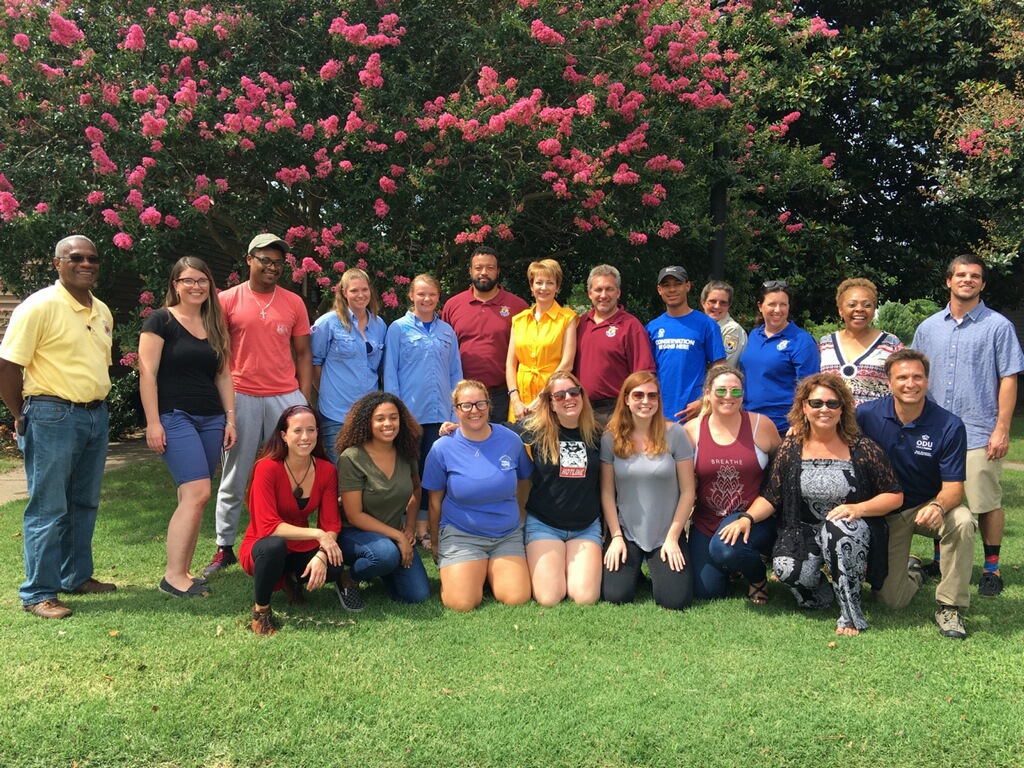Course description
The interships in for this class can be conducted in Summer 2018 either as part-time of full-time internships. The intership mandates 200 hours at the host institution. Each intership requires an individual application to ensure that the student is matched to requirements of a particular internship. After submission of the application, an interview will be scheduled with the advisors to ensure that there is an optimal match between the host, project, location, etc., and the student's interests and qualifications.
Each internship will focus on a "real-world issue" that constituted a leadership challenge in conservation. The student is expected to use the concepts of adaptation and sustainability science to analyse the issue and to develop options of how to address the issue. Each student will be mentored in the context of the course and will have a dedicated supervisor at the host institution. Weekly reports and weekly conversations of mentor and student will ensure that the mentor can provide guidance and support the student when needed.
Course expectations
The deliverables of the internship include:
- A final report providing details on the research, including an executive summary, a description of the system considered and the challenge addressed, the hazards the system is exposed to, vulnerabilities of the system, foresight, decision making, options, and recommendations.
- A one-page promotion summary of the internship project and the resulting recommendations in a wording for non-experts (template).
- A short reflection on the experience of the internship and the personal value this experience has for you.
- A promotion presentation giving an overview of the research project (template).
- A project video providing a concise overview of the project and its outcomes. Examples of such videos can seen at the CDIP YouTube page. Good example of combining reflection with the research story are the videos of Victor Zhang and Samantha Derrick. See the tips for creating the video.
Requirements
Prerequistes are all mandatory classes of the Conversation Leadership Minor, i.e., BIOL/OEAS/IDS 466W and BIOL/OEAS/IDS 467. Students are expected to have reached the Commonwealth of Virginia standards-of-learning in high school math, science, and writing. Regular class attendance is required as some of the information will only be provided during class.
Work Skills and Collaboration
You must be able to access Blackboard and the class web page at http://www.mari-odu.org/academics/2018su_Internship on a daily basis. Assignment details including deadlines, course materials, schedule changes, and other important information will be posted at the class web page regularly. Please visit the course website for detailed weekly course information.
Grades will be available on the class page on Blackboard.
Collaboration is expressly permitted, encouraged, and may even be required for team projects, but must follow these guidelines:
- You must actively participate in the collaborative project;
- You must write your own individual report on any team project work;
- All team members’ names must be included in any written project work;
- You must understand the material and be able to answer questions on it.
Grading
The course requires deliverables to be upload to Blackboard in a timely manner respecting all deadlines.
You will be graded on a standard scale:
100-95% =A
90-94% = A-
86-89% = B+
85-83% =B
82-80% =B-
79-76% =C+
75-72% =C
72-70% =C-
69-66% =D+
65-63% =D
62-60% =D-
59.9% and below=F.
The overall grade for the class will be composed of individual grades using:
Weekly reporting 10%
Final report: 40%
Presentation: 10% (5% for the presentation during the orientation workshop and 5% for the final presentation)
One-page promotional summary of the project: 10%
Reflective short story: 10%
Project video: 20%
University regulations prohibit communicating test results via email or by phone. If you wish to talk about your grade, please make an appointment. All scores will be placed on BlackBoard as soon as possible after they are graded.
Grade forgiveness policy:
Missed deadlines are only acceptable for valid reasons such as: participation in ODU sports team events (a coach's note is needed), evidence of illness (doctor's or Student Health Services' note needed), bereavement of an immediate family member (death notice needed), or documented court appearance (copy of notice to appear needed). Advance notice in writing must be given whenever possible.
Late submissions will be graded on a reduced point scale as follows:
up to 24 hrs late = 90%
up to 48 hrs late = 80%
A further 10% per day reduction in possible points earned will be applied, up to a maximum total of 5 days late, after which the assignment will not be accepted without evidence that the student was sick or there was a family emergency.
|
Announcements
[2018/07/02] The Orientation Workshop took place on June 28-29, 2018 at ODU.

Front row from left: Angela Kennedy, Lena Midgette, Fallon Woolford, Alissa Ralston, Alexa Zwicker, Kayla Berger, Alisa Rawlins, Eddie Hill. Back row from left: Albert Spell, Rachel Case, Austin Greenhill, Intern, Intern, Devin Ray, Tatyana Lobova, Chris Lowie, Intern, Wendy Stanton, Lauren Mowbary, Mamie Parker, Chase Garrison.
Experiences of Students
Kayla Berger
Rachel Case
Chase Garrison
Angela Kennedy
Lena Midgette
Alissa Ralston
Fallon Woolford
Financial Support
Financial support was available for the internships, including travel costs, lodging, per diem for food, and insurance fees. The availability of funding depends on economic needs and academic standing. A GPA of 3.0 was required to be eligible for funding.
Orientation Workshop
All interns participated in an orientation workshop that was held at the beginning of the internship. Full participation in the orientation workshop was mandatory and internships could not be started before full participation in the orientation workshop.
|